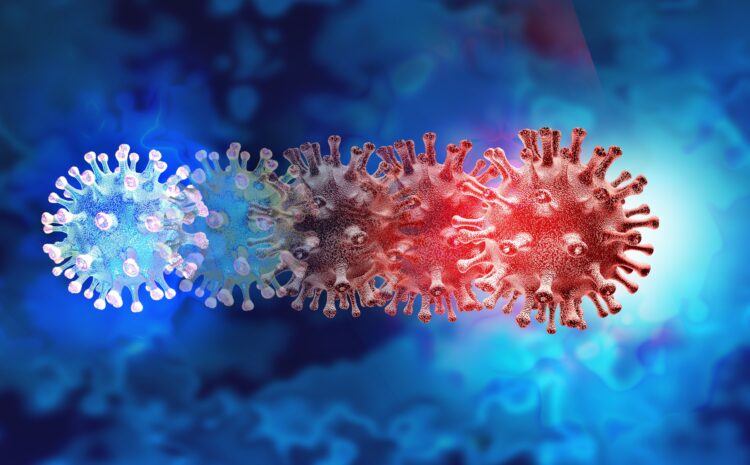
Thymosin α1 immunomodulatory properties in SARS-CoV-2 infection
New article discusses the potential of thymosin alpha 1 (Tα1) as an immunomodulatory therapy in COVID-19, highlighting its ability to decrease pro-inflammatory cytokine production and increase IL-10 release in response to SARS-CoV-2 infection. The study suggests that Tα1 could prevent hospitalization of fragile patients with mild or moderate disease, unvaccinated subjects, or those who developed a breakthrough infection by modulating innate immune responses and mitigating inflammatory pathways.
Anti-inflammatory drugs can benefit individuals with severe COVID-19 disease by reducing the hyper-inflammatory response and cytokine storm that are characteristic of the disease. Severe COVID-19 is associated with an overactivation of innate and adaptive immunity, depletion and exhaustion of lymphocytes, leading to tissue damage and organ involvement. Modulation of the immune response can help mitigate the pathological consequences of the disease and improve patient outcomes.
Thymosin alpha 1 (Tα1) plays a crucial role in restoring immune homeostasis in various diseases, including COVID-19. Tα1 is a polypeptide hormone that acts as a master regulator of immune homeostasis, with the ability to restore balance in immune responses. In diseases involving immune dysfunction, such as chronic hepatitis, sepsis, cystic fibrosis, and cancer, Tα1 has been successfully used to restore immune homeostasis.
Specifically in the context of COVID-19, Tα1 has shown promise as an immunomodulatory therapy. Studies have demonstrated that Tα1 can reduce the mortality of severe COVID-19patients by enhancing immune responses and limiting SARS-CoV-2 viral spreading. Tα1 has been shown to mitigate the cytokine storm and T-cell exhaustion/activation in individuals infected with SARS-CoV-2.
In COVID-19 patients, Tα1 treatment has been found to dampen the inflammatory response by reducing the release of pro-inflammatory mediators, such as TNF-α, IL-6, and IL-8, while promoting the production of the anti-inflammatory cytokine IL-10.
The use of recombinant human interferon nasal drops in combination with Tα1 has been shown to effectively prevent COVID-19 in medical personnel. This combination treatment targets the upper respiratory airways and the nasal barrier, which are crucial entry points for the SARS-CoV-2 virus. By enhancing the immune response early on, this approach helps prevent infection and limit the spread of the virus.
Tα1’s multifaceted and pleiotropic properties make it a promising candidate for restoring immune balance in various diseases, including COVID-19, by regulating inflammation, enhancing immune responses, and promoting immune tolerance mechanisms. By investigating its effects on the innate inflammatory response in a peripheral blood mononuclear cell-based in vitro model, Tα1 can mitigate the pro-inflammatory cytokine production and promote the release of anti-inflammatory cytokines, such as IL-10. These findings highlight the importance of alternative therapeutic approaches, such as host-directed therapies, in managing the immunopathological features of COVID-19, including hyper-inflammation, lymphopenia, T cell activation, and uncontrolled cytokine responses. Further research is warranted to explore the efficacy of Tα1 in treating COVID-19 and its variants, particularly in the context of the rapidly evolving landscape of the disease.
